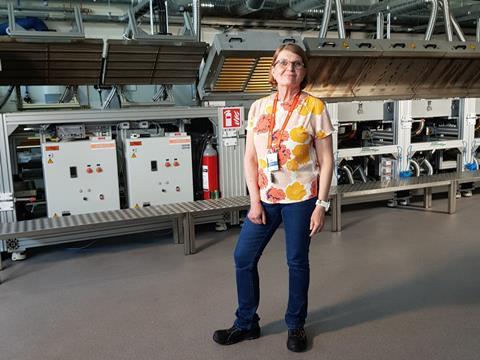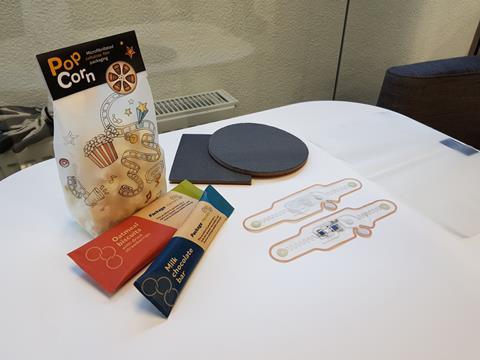
Dr. Ulla Forsström is principal scientist at the VTT Technical Research Centre of Finland and coordinates the EU-funded project INN-PRESSME supporting European SMEs and companies to develop bio-based solutions in the packaging, energy, transport, and consumer goods sector. In this edition of The Spotlight, Dr. Forsström gives her views on how recyclable biomaterials can transform the industry and how industrial partners can benefit from the knowledge gained in the project.
The average packaging waste generated per person across the continent each year is about 177.2kg - according to the European Commission´s statistics published in 2020. The need for change in the packaging industry is undeniable, and biomaterials strengthened with organic nanomaterials could be the safety hook.
Biomaterials - a sustainable alternative
One development has been to find alternatives to oil-based plastics such as novel biomaterial solutions and bioplastics. “The definition of these two terms is difficult,” says Dr. Ulla Forsström. “Biomaterial is produced from bio-based resources. Bioplastic is, in turn, produced from these biomaterials. But bioplastic is not necessarily any more biodegradable.”
The benefits of such materials are not only that they are not as damaging to the environment as those sourced from fossil fuels, but they are renewable and can also be made recyclable.
Leading the INN-PRESSME project she collaborates with a network of 27 partners from nine countries dotted around Europe. Their aim: developing services along the entire value chain to help the industry integrate sustainable biomaterials into their processes.
“My favourite innovations deal with bio-based packaging solutions, because that´s an area where we have our focus and where we already have developed a lot of knowledge and competence,” says Forsström. “We believe we can help other industrial partners with this know-how.”

OPEN CALL – Applicants wanted!
Starting from December 2022, the project aims to subsidise up to fifteen innovation concepts through two Open Calls with a total budget of €1.6 million. “The beneficiaries will get access to our large-scale pilot trials for free. Based on our knowledge we would then customise the needed pilot facilities to develop the solutions that the customer is targeting for a scale-up,” explains Forsström.
The technologies developed along the way will allow companies to use bio-based solutions in their everyday processes, develop new materials from plants, and produce and test bio-based materials from bio-based feedstocks.
The process is to take place through an Open Innovation Test Bed. Partners in the development will have shared access to facilities and services so they can develop, test, and upscale nanotechnology and advanced materials in industrial settings.
“In principle, each industry partner could apply, but as we are targeting the circular economy the products should be recyclable, either in a plastic circle or in a fibre-based product circle, or as a composite. The applicants should have a clear idea of what they are looking for and should already have done some laboratory tests,” says the project coordinator.














No comments yet